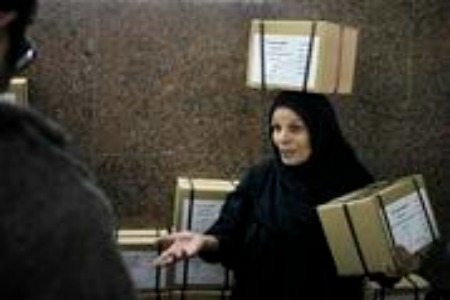
Egypt’s security chief on Monday warned supporters of the ousted Islamist president that troops guarding polls during the next day’s constitutional referendum will deal with anyone attempting to disrupt the vote with unprecedented force.
Authorities consider the draft charter to be a milestone in a military-backed transition road map put in place after Mohammed Morsi was overthrown in a popularly backed military coup last July.
“I am telling them, they will be faced with force, decisiveness and strength never seen before,” Interior Minister Mohammed Ibrahim told state TV, adding: “everyone rest assured … we are watching your back.”
State TV showed Ibrahim inspecting some of the 350,000 police and army personnel – including special forces and paratroopers backed by armored vehicles and helicopters – currently being deployed to streets across the country to secure the polls and encourage a high turnout.
The Jan. 14-15 vote provides the country’s increasingly popular military chief, Gen. Abdel-Fattah el-Sissi, with a first electoral test since he ousted Morsi. A comfortable “yes” vote and a respectable turnout would be seen as bestowing legitimacy, while undermining the Islamists’ argument that Morsi remains the nation’s elected president.
Morsi’s Muslim Brotherhood, which fell from power and is now branded as a terrorist group, has called for a boycott of the vote as well.
In its latest statement, a Brotherhood-led alliance said: “the blood of Egyptians is not a ladder to take over the seat of the kidnapped President.” Regarding whether to vote “yes” or “no” on the document, it added: “The boycott is the only way.”
Morsi is on trial over several charges, including inciting killing of protesters, conspiring with foreign groups and orchestrating jailbreaks during 2011 uprising which forced his predecessor Hosni Mubarak from power.
“Topple the blood-stained constitution with civilized, peaceful masses,” it said, urging its supporters not to hold demonstrations near polling stations.
The charter had been drafted in 2012 by an Islamist-dominated panel under Morsi, but was suspended after the coup and heavily amended by two panels dominated by secular-minded politicians and legal experts under the interim government. While limiting the role of Islamic law in legislation, the charter consolidates military privileges such as the ability to try civilians in front of military tribunals in specific conditions.
Many of its articles appear progressive compared to the text drafted under Morsi. The draft ensures equality between men and women, tasking the state to take measures to guarantee women proper representation in legislative councils, senior public and administrative posts and judicial institutions. It obligates the state to provide protection to women against “any form of violence.”
Outside Egypt, The Supreme Election Committee said that only 15 percent of more than 680,000 eligible expatriate voters had cast their ballots for the past five days worldwide. It explained that the low turnout is due to cancellation of voting by mail, which was the reason behind high expat turnout in past referendums including one on the 2012 constitution. Participation by Egyptians living abroad in that poll reached nearly 40 percent.
In a phone call by U.S. Secretary of Defense Chuck Hagel with el-Sissi on Sunday, Hagel “stressed the importance of a transparent referendum in which all Egyptians have the opportunity to cast their vote freely.”
US relations with Egypt, the second largest recipient of US aid in the world, have soured over the removal of Morsi, with the United States withholding millions of dollars in military aid. Egypt’s military however maintains strong relations with the Pentagon.
In addition to toppled president’s group, another party, Strong Egypt, announced on Monday that it is boycotting the referendum over the arrest of people campaigning against it.
“These very bad signs show that the referendum is taking place in circumstances that violates simple democratic rules,” said the party, which is headed by former presidential candidate and leading Islamist Abdel-Moneim Abolfotoh. “The Strong Egypt party decided to withdraw completely from the referendum.”
Abolfotoh defected from the Brotherhood in 2011 and ran in presidential elections against Morsi, taking fourth place. He later joined June 30 demonstrations calling for Morsi’s resignation but opposed the subsequent heavy-handed police crackdown on the Brotherhood that left hundreds dead and thousands in jail.
New-York based Human Rights Watch commented on the arrests of “no” vote campaigners in a statement Monday.
“Egyptian citizens should be free to vote for or against the new constitution, not fear arrest for simply campaigning for a `no’ vote,” said Joe Stork, Middle East and North Africa Deputy Director.
“Protecting the right to vote requires safeguarding the right to free expression.”
